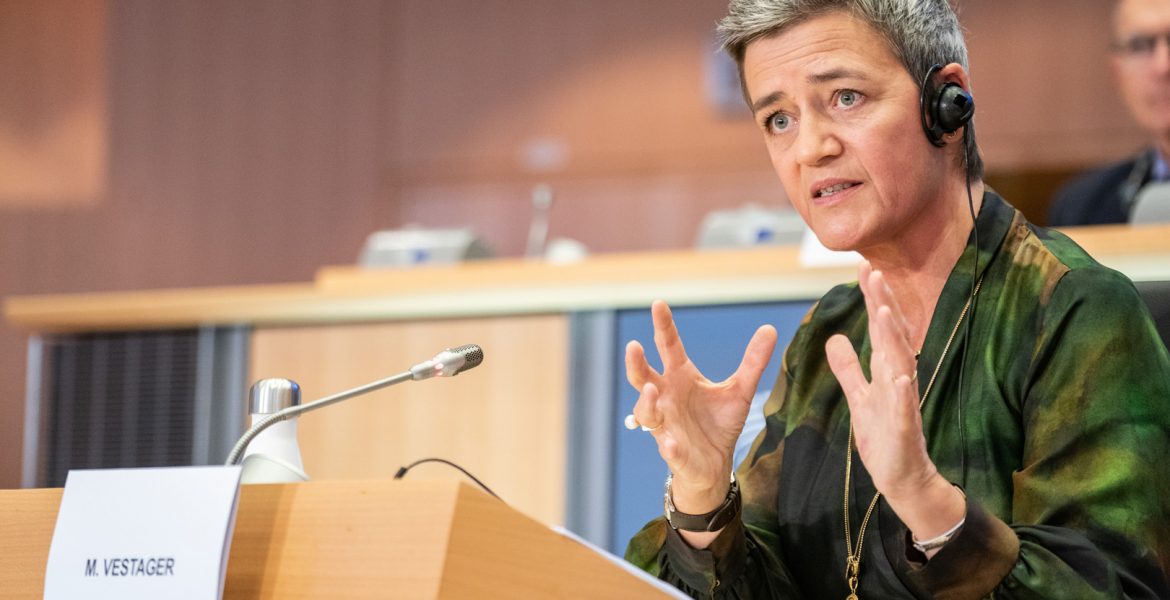The European Commission has approved a €108 million Danish aid measure to support coronavirus-related research and development (R&D) activities of Bavarian Nordic, a company active in the vaccine development and manufacturing industry. The scheme was approved under the State aid framework.
Executive Vice-President Margrethe Vestager, in charge of competition policy, said: “This €108 million Danish aid measure will contribute to much needed R&D activities to respond to the coronavirus outbreak. We continue working in close cooperation with Member States to find workable solutions to mitigate the economic impact of the coronavirus outbreak, in line with EU rules.”
Denmark notified to the Commission under the framework a €108 million aid measure to support coronavirus-related R&D activities of Bavarian Nordic, a large company active in the vaccine development and manufacturing industry in Denmark and Germany. The public support will take the form of a repayable advance.
The aim of the measure is to support the R&D for a novel coronavirus vaccine, developed by AdaptVac and licensed to Bavarian Nordic. The candidate vaccine is currently undergoing phase II clinical trials. The aid will support the next development steps, namely the phase III trial to confirm safety and demonstrate efficacy, the experimental development of the necessary production processes, and the works related to the required regulatory authorisations.
The Commission found that this aid measure is in line with the conditions set out in the Temporary Framework. In particular, (i) the aid will cover less than 80% of the relevant R&D costs and will be fully recovered in case of regulatory authorisation; and (ii) any results of the research activities will be made available to third parties in the European Economic Area at non-discriminatory market conditions through non-exclusive licences.
The Commission concluded that the measure is necessary, appropriate and proportionate to fight the health crisis, in line with Article 107(3)(c) of the Treaty on the Functioning of the European Union and the conditions set out in the Temporary Framework.
On this basis, the Commission approved the aid measure under EU State aid rules.
The Commission has adopted a framework to enable Member States to use the full flexibility foreseen under State aid rules to support the economy in the context of the coronavirus outbreak.
(i) Direct grants, equity injections, selective tax advantages and advance payments of up to €225,000 to a company active in the primary agricultural sector, €270,000 to a company active in the fishery and aquaculture sector and €1.8 million to a company active in all other sectors to address its urgent liquidity needs. Member States can also give, up to the nominal value of €1.8 million per company zero-interest loans or guarantees on loans covering 100% of the risk, except in the primary agriculture sector and in the fishery and aquaculture sector, where the limits of €225,000 and €270,000 per company respectively, apply.
(ii) State guarantees for loans taken by companies to ensure banks keep providing loans to the customers who need them. These state guarantees can cover up to 90% of risk on loans to help businesses cover immediate working capital and investment needs.
(iii) Subsidised public loans to companies (senior and subordinated debt) with favourable interest rates to companies. These loans can help businesses cover immediate working capital and investment needs.
(iv) Safeguards for banks that channel State aid to the real economy that such aid is considered as direct aid to the banks’ customers, not to the banks themselves, and gives guidance on how to ensure minimal distortion of competition between banks.
(v) Public short-term export credit insurance for all countries, without the need for the Member State in question to demonstrate that the respective country is temporarily “non-marketable”.
(vi) Support for coronavirus related research and development (R&D) to address the current health crisis in the form of direct grants, repayable advances or tax advantages. A bonus may be granted for cross-border cooperation projects between Member States.
(vii) Support for the construction and upscaling of testing facilities to develop and test products (including vaccines, ventilators and protective clothing) useful to tackle the coronavirus outbreak, up to first industrial deployment. This can take the form of direct grants, tax advantages, repayable advances and no-loss guarantees. Companies may benefit from a bonus when their investment is supported by more than one Member State and when the investment is concluded within two months after the granting of the aid.
(viii) Support for the production of products relevant to tackle the coronavirus outbreak in the form of direct grants, tax advantages, repayable advances and no-loss guarantees. Companies may benefit from a bonus when their investment is supported by more than one Member State and when the investment is concluded within two months after the granting of the aid.
(ix) Targeted support in the form of deferral of tax payments and/or suspensions of social security contributions for those sectors, regions or for types of companies that are hit the hardest by the outbreak.
(x) Targeted support in the form of wage subsidies for employees for those companies in sectors or regions that have suffered most from the coronavirus outbreak, and would otherwise have had to lay off personnel.
(xi) Targeted recapitalisation aid to non-financial companies, if no other appropriate solution is available. Safeguards are in place to avoid undue distortions of competition in the Single Market: conditions on the necessity, appropriateness and size of intervention; conditions on the State’s entry in the capital of companies and remuneration; conditions regarding the exit of the State from the capital of the companies concerned; conditions regarding governance including dividend ban and remuneration caps for senior management; prohibition of cross-subsidisation and acquisition ban and additional measures to limit competition distortions; transparency and reporting requirements.
(xii) Support for uncovered fixed costs for companies facing a decline in turnover during the eligible period of at least 30% compared to the same period of 2019 in the context of the coronavirus outbreak. The support will contribute to a part of the beneficiaries’ fixed costs that are not covered by their revenues, up to a maximum amount of €10 million per undertaking.
The Commission will also enable Member States to convert until 31 December 2022 repayable instruments (e.g. guarantees, loans, repayable advances) granted under the Temporary Framework into other forms of aid, such as direct grants, provided the conditions of the Temporary Framework are met.
The Temporary Framework enables Member States to combine all support measures with each other, except for loans and guarantees for the same loan and exceeding the thresholds foreseen by the Temporary Framework. It also enables Member States to combine all support measures granted under the Temporary Framework with existing possibilities to grant de minimis to a company of up to €25,000 over three fiscal years for companies active in the primary agricultural sector, €30,000 over three fiscal years for companies active in the fishery and aquaculture sector and €200,000 over three fiscal years for companies active in all other sectors. At the same time, Member States have to commit to avoid undue cumulation of support measures for the same companies to limit support to meet their actual needs.




